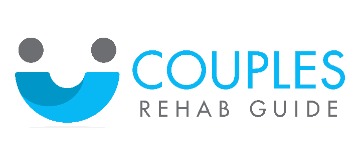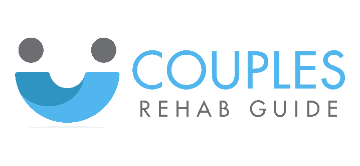A Healing Path for Partners Struggling with Addiction
When one or both partners in a relationship are struggling with addiction, the effects can be brutal – not just on individual health but also on the trust, communication, and emotional intimacy in the relationship. If you are looking for couples rehab, Illinois offers a unique integrated approach to recovery where romantic partners can heal together.
These addiction treatment programs recognize the powerful role relationships play in both addiction and recovery. Whether you’re in Chicago, Springfield, Peoria or anywhere in the state, Illinois has reputable facilities that offer evidence based addiction treatment with specialized programming for couples.
What is Couples Rehab and How Does It Work?

Couples rehab is a type of substance abuse treatment where both partners receive treatment at the same time, often in the same facility. Unlike traditional rehab programs that focus solely on the individual, couples rehab addresses the shared dynamics of addiction.
Counselors play a big role in these programs, working with the couple to navigate their recovery journey and provide guidance and structure in a controlled environment. These programs often include individual therapy, couples therapy, group sessions and family counseling.
The goal is twofold: to help each person get sober and to restore or rebuild a healthier more supportive relationship. In Illinois, couples rehab may be inpatient or outpatient depending on the severity of the addiction, level of care needed, and insurance coverage.
Why Go to Rehab Together as a Couple
Attending a couples rehab center can be a great choice for relationships affected by drug and alcohol abuse. There are many ways that seeking treatment together can be beneficial for individuals in a romantic relationship, including:
Rebuilding Trust and Communication

Addiction causes broken promises, deceit, and emotional withdrawal. In couples rehab both partners have the opportunity to work through these challenges in a therapeutic setting. Licensed clinicians guide partners through open and honest dialogue to rebuild communication skills and re-establish trust.
Strengthening the partnership is key to recovery as it reinforces the bonds of communication, trust, and mutual support during their journey to sobriety. Substance use disorder treatment programs offer the space both parties need to do just this.
Simultaneous Healing and Accountability
Healing together can provide a sense of solidarity and accountability for both individuals. By going through the recovery process side by side, couples can support each other emotionally, celebrate milestones together and avoid enabling behaviors. Mutual commitment enhances therapeutic outcomes and supports long term sobriety, creates a supportive environment necessary to overcome addiction.
Codependency and Trauma
Many couples struggling with addiction also have co-occurring disorders such as substance use disorder and mental health issues, codependency, unresolved trauma, or domestic conflict. Couples therapy in a rehab setting helps identify and treat these patterns so each partner can grow individually and as a unit.
Unified Relapse Prevention Plan
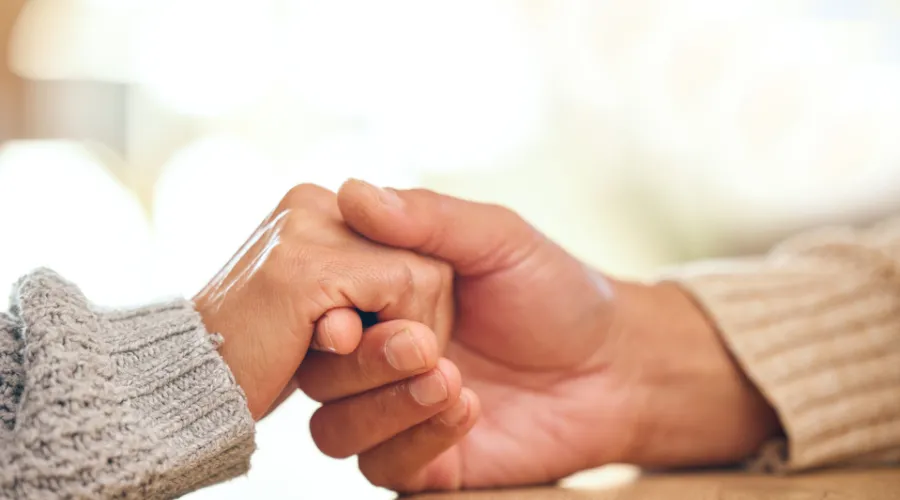
Aftercare planning is a big part of the rehab process. Couples rehab helps partners create a shared relapse prevention plan that outlines healthy coping strategies, boundaries, and long-term goals. So both people leave treatment with tools to stay on track and support each other post-rehab
Types of Addiction Treatment for Couples in Illinois
There are several different types of treatment available to couples affected by substance addiction. These include:
Inpatient Couples Rehab
Inpatient or residential rehab programs provide 24/7 care in a structured therapeutic environment. This is ideal for couples with severe or long-standing substance use issues, co-occurring mental health disorders, or a history of relapse.
Inpatient rehab programs typically last 30, 60, or 90 days and include detox (if needed), individual and couples therapy, peer support groups, and holistic therapies. Some facilities are Joint Commission accredited ensuring high standards of care.
Outpatient Couples Rehab

Outpatient treatment offers flexibility and benefits for couples who can’t commit to full time residential care due to work, children or other obligations. These programs may include Partial Hospitalization Programs (PHP) or Intensive Outpatient Programs (IOP). While living at home, couples attend therapy and treatment sessions multiple times a week as part of their outpatient rehab process.
Dual Diagnosis Treatment
Many individuals battling addiction also struggle with mental health disorders such as anxiety, depression, or PTSD. Illinois couples rehab programs often offer dual diagnosis treatment to address addiction and co-occurring conditions at the same time.
This integrated approach ensures mental health support is not overlooked during recovery. Additionally, medication-assisted treatment (MAT) is crucial for opioid addiction as it combines medications with behavioral therapies to improve patient outcomes.
Medication-Assisted Treatment (MAT)

MAT is a medically supervised approach that uses FDA-approved medications to reduce cravings and withdrawal symptoms for opioid, alcohol, or nicotine addiction. When used in conjunction with counseling MAT can be a powerful tool—especially for couples where one or both partners need specific, tailored approaches and therapies to support them during detox and early recovery.
Family and Trauma Therapy
Beyond couples therapy, many Illinois rehab centers incorporate trauma-informed therapy and family-based approaches. This includes EMDR (Eye Movement Desensitization and Reprocessing), cognitive behavioral therapy (CBT), family therapy, and multi-family support groups to help couples address past wounds and build future resilience.
Cognitive Behavioral Therapy
Cognitive Behavioral Therapy (CBT) is a highly effective treatment approach for addiction. CBT, in particular behavioral couples therapy, helps individuals identify and change negative thought patterns and behaviors that contribute to their drug abuse.
By learning new ways of thinking and behaving individuals can develop healthier coping mechanisms and improve overall well-being. CBT is great for individuals who are struggling with addiction as it provides a structured and supportive environment for growth and change.
What to Expect During Couples Rehab in Illinois
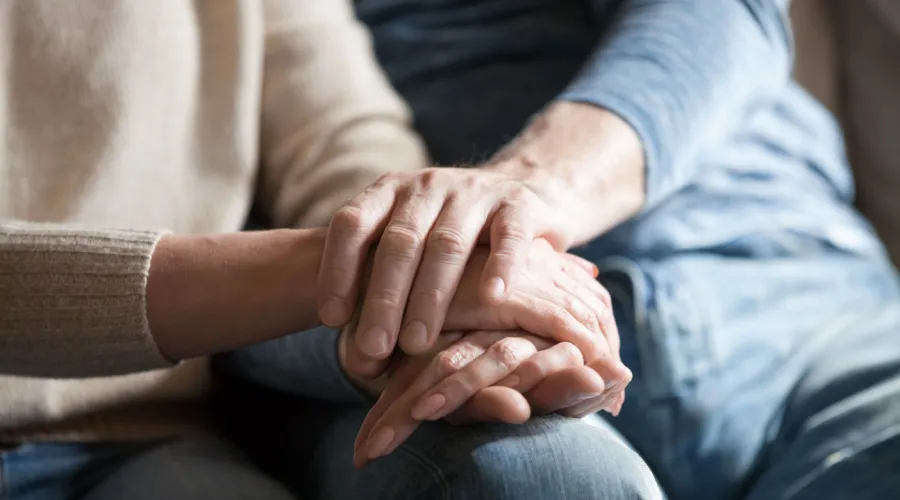
When participating in a couples drug rehab program, it can help to know what to expect from treatment ahead of time. While the exact healing process may look different depending on the facility, you can generally expect the following:
Assessment and Intake
Once you and your partner decide to enter treatment the first step is an assessment. This includes medical evaluations, substance use history, mental health screening, and relationship assessments. The goal is to create personalized treatment plans tailored to the individual needs of patients.
Medical Detox (If Needed)
For those with a physical dependency on drugs or alcohol, a supervised detox may be required before therapy can begin. Detox is usually done in a clinical setting under medical supervision to ensure safety and comfort.
Combining multiple substances including other drugs can complicate the detox process and increase the risks associated with withdrawal.
Structured Daily Programming

Daily schedules in rehab typically include opportunities to engage in individual therapy, couples counseling, educational workshops, relapse prevention groups, and experiential therapies such as art, music, or fitness. These sessions are designed to foster emotional growth, improve relationship dynamics, and teach critical recovery skills.
Progress Monitoring and Adjustments
Throughout treatment, your clinical team will monitor your progress and adjust your treatment plan as needed. Couples therapy sessions will evolve as communication improves and individual therapy will continue to explore deeper-rooted issues.
Aftercare Planning and Discharge
Before you graduate you’ll work with a case manager to develop an aftercare plan. This might include continued outpatient therapy, sober living arrangements, support groups like AA or SMART Recovery, and relationship counseling to maintain momentum post-treatment.
While hope is important structured therapy and support are key to long-term recovery.
Mindfulness-Based Sobriety for Couples

Mindfulness-Based Sobriety is a holistic approach to addiction treatment that focuses on cultivating mindfulness and self awareness. This approach helps individuals develop a greater understanding of their thoughts, feelings and behaviors and learn to manage stress and cravings in a healthy way.
Mindfulness-Based Sobriety is great for individuals looking for a more spiritual or holistic approach to addiction treatment. By practicing mindfulness and self-compassion individuals can develop a stronger sense of self and improve overall well-being.
Sober Living Options for Couples
Sober living options for couples provide a supportive and structured environment for individuals to recover from addiction together. These programs offer a range of services including counseling, support groups, and recreational activities to help couples build stronger and healthier relationships.
Sober living options for couples are great for individuals who are committed to their partner and want to work through their addiction issues together. By living in a sober environment couples can focus on their recovery and build a stronger more loving relationship.
How to Verify Insurance Coverage for Couples Rehab in Illinois

One of the most important things you and your partner will need to do before starting treatment is find a facility that is covered under your insurance. This can significantly offset the expenses of couples rehab. Here’s what to do:
Step 1: Gather Your Policy Information
Start by gathering your health insurance details including the policyholder’s name, member ID, group number, and insurance provider contact information. You’ll need this when calling treatment centers or verifying benefits online. Make sure to check if your insurance is in-network to ensure coverage for addiction treatment services.
Step 2: Call the Couples Rehab Guide Team
At Couples Rehab Guide, we offer a free, confidential insurance verification service. Our admissions team can contact your insurance provider on your behalf to confirm what’s covered and what’s not including whether couples therapy is included under your behavioral health benefits. Many rehab centers also accept a variety of insurance plans including private insurance, Medicare, and military insurance making treatment more accessible.
Step 3: Ask the Right Questions
When speaking to our team, you may want to ask questions like:
- Is couples rehab covered under my plan?
- What levels of care are included (detox, inpatient, outpatient)?
- Are there any out-of-pocket costs or copays?* Is pre-authorization required?
- Are both partners required to have the same insurance provider?
Also ask how these programs can accommodate daily schedules and provide constant support, showing the breadth of their services and the importance of a supportive environment during recovery.
Step 4: In-Network vs. Out-of-Network
Some rehab facilities are in-network with major providers like Blue Cross Blue Shield of Illinois, Aetna, Cigna, or UnitedHealthcare which can reduce out-of-pocket costs. Others may be out-of-network but still offer coverage with higher copays or deductibles. Knowing the difference helps you make an informed financial decision.
We also serve specific communities providing access to treatment and support to meet the needs of various populations including veterans and local residents.
Support Groups for Couples in Recovery
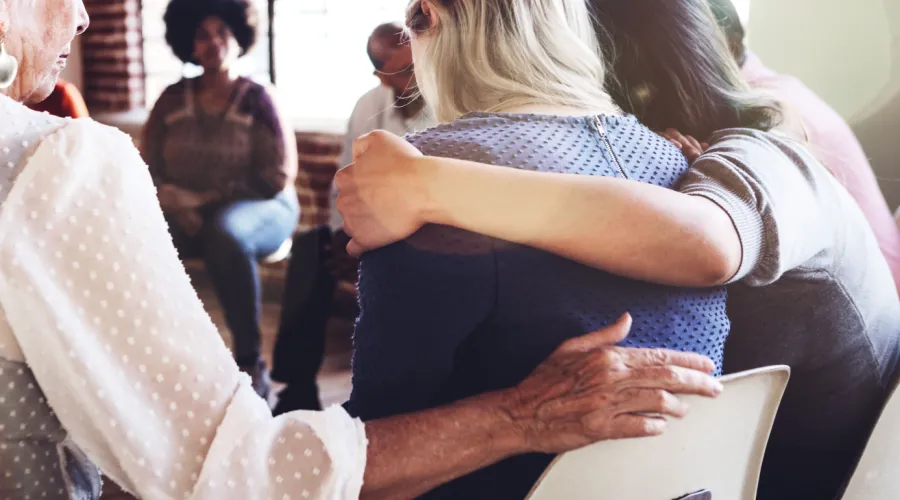
Support groups for couples in recovery provide a safe and supportive environment for individuals to share their experiences and connect with others who are going through similar challenges. These groups offer emotional support, guidance, and accountability to help couples stay on track with their recovery.
Support groups for couples in recovery are great for individuals looking for a sense of community and connection with others. By attending support groups couples can build a stronger support network and improve their overall chances of long term sobriety.
Finding the Right Couples Rehab in Illinois

Choosing a rehab program is a personal decision. Here are a few tips to help you find the right fit:
- Look for centers that are licensed by the Illinois Department of Human Services Division of Substance Use Prevention and Recovery (SUPR)
- Make sure the facility offers couples therapy as part of their core programming—not just as an add-on.
- Ask about therapist credentials (LCSW, LPC, LMFT)
- Read reviews and testimonials from other couples who’ve been through the program.
- Consider if you need detox services, dual diagnosis care, or MAT.
Also make sure the rehab center has an experienced team of doctors, therapists, and nurses to provide effective treatment and personalized care. The team at Couples Rehab Guide can help you confirm all this information and find drug and alcohol rehab services that are right for you and your partner’s needs.
Start Healing Together in Couples Rehab Illinois
Addiction doesn’t just affect one person—it affects the whole relationship. Couples rehab in Illinois offers a way forward for both partners to break the cycle of addiction and strengthen the bond they share. If you and your partner are ready to take that first step you don’t have to do it alone.
With the right treatment center, personalized care, and professional support recovery is not only possible—it’s something you can build together. Contact us today to learn more about couples rehab near you and start writing the next chapter of your lives—together, in recovery.
FAQs About Couples Rehab in Illinois
Can Couples Stay Together in Rehab in Illinois?
It depends on the facility. Some inpatient programs offer shared accommodations or allow partners to participate in therapy together while sleeping in separate rooms. Outpatient programs allow couples to live at home while attending therapy together. Be sure to ask about housing policies during your intake Call to find the right place for treatment.
What If One Partner Wants Help but the Other Doesn’t?
This is a common concern. While couples rehab is most effective when both individuals are in the recovery process, some centers allow one partner to start treatment with the option for the other to join later. Individual counseling can help explore this dynamic and encourage both partners to recover.
Is an Illinois Couples Rehab Safe for Relationships with a History of Domestic Violence?
In cases where there is a history of violence or abuse a thorough risk assessment is conducted before recommending couples treatment as these relationships often face significant relationship challenges. Safety is always the priority. In these cases, individual treatment or separate programs may be more appropriate with couples therapy introduced later if safe to do so.
What Substances Are Treated in a Couples Rehab Center in Illinois?
Illinois drug alcohol rehab programs treat a wide range of substance use disorders including alcohol, opioids, stimulants (cocaine or meth), benzodiazepines, cannabis, and prescription drug misuse. Many also treat co-occurring addictions such as gambling or sex addiction.
Will Insurance Cover an Illinois Rehab for Both Partners?
Insurance is typically assessed individually even if partners share a plan. Each person may have different deductibles, benefits or requirements for medical necessity. A treatment center’s insurance team can help clarify what’s available for each partner so personalized care and support can be provided for all individuals.
